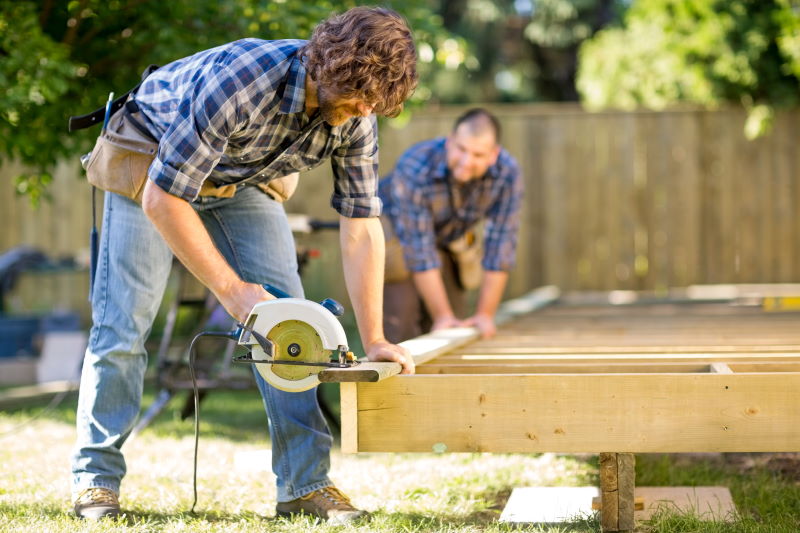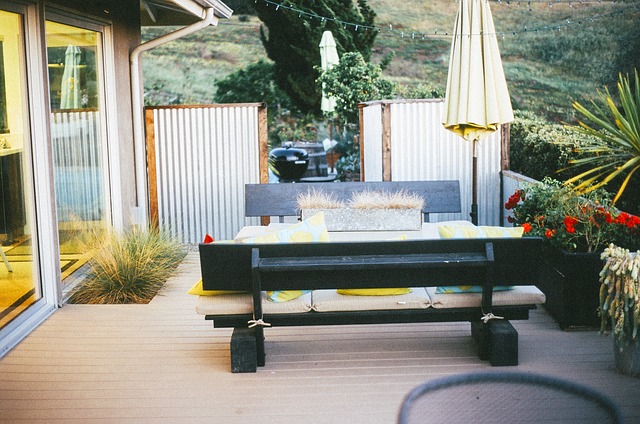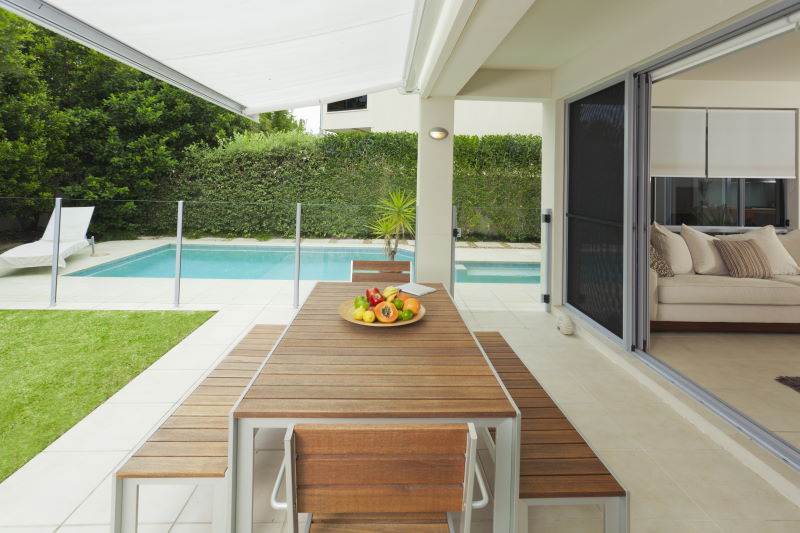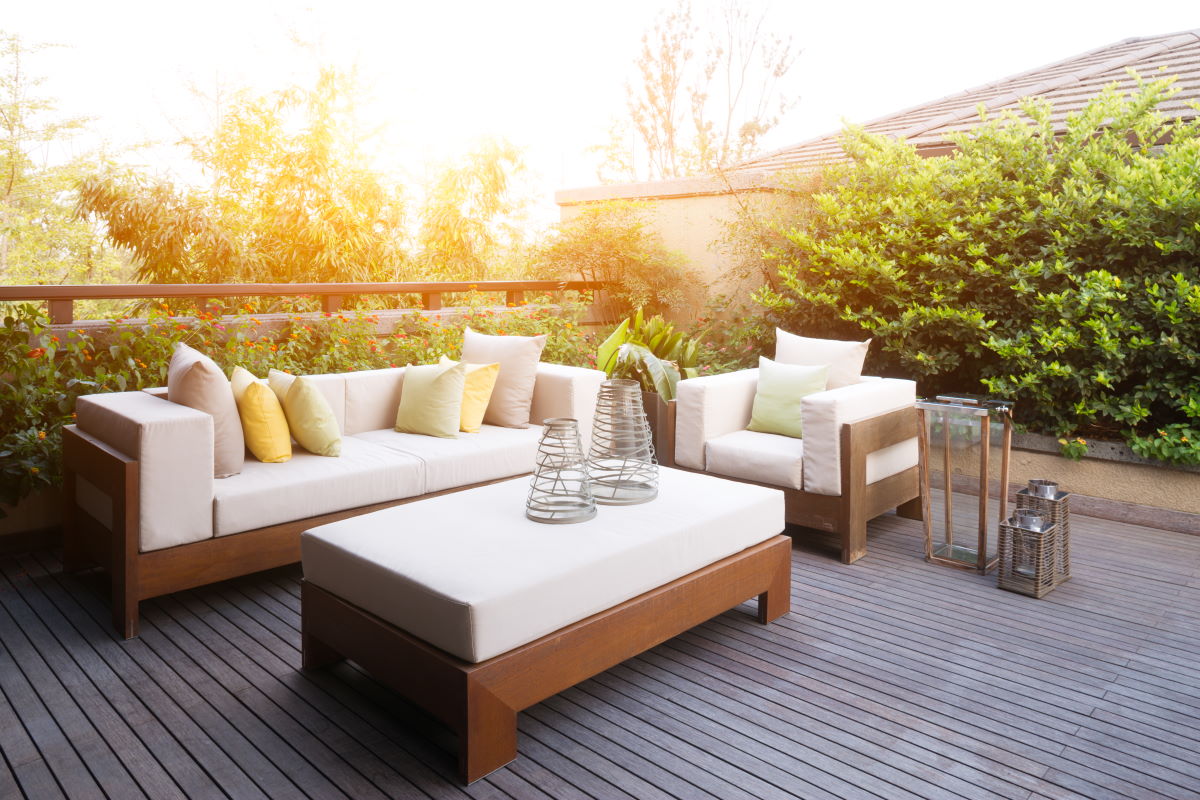Outdoor spaces
Decking vs. Paving: which is best for you?
Your house is set amid beautiful outdoor surroundings, but you’re yet to make use of this wonderful space. So what should you do? Well, the two most popular options for using an outdoor area are to build a deck so you have a platform from which you can enjoy your yard, or to pave a courtyard for similar purposes.
However, chossing the right type of outdoor area for your home is not easy.
In this post, we look at the advantages and disadvantages of these two types of outdoor settings so you can make the most informed decision for that which would best suit your home.
Differences between decking and paving

The distinguishing feature between decking and paving is the materials from which they are created.
Decks are elevated platforms assembled from natural timbers or composite planks, whereas paving utilises stone, bricks, tiles or cement and is built into a flat surface across the ground.
Advantages and disadvantages

Decking can be installed much more quickly than paving, owing largely to the fact that it’s an easier structure to assemble and erect. It requires less fuss in flattening and smoothing the ground before fastening it into place, and can be heightened and adjusted in areas where the contour of the earth might be sloping or uneven.
Its natural wood-toned colours means it will blend in with and complement the natural surroundings of your home.
Also, decking materials tend to be more affordable than paving materials, meaning the initial outlay won’t cost as much should you opt for a deck over paving.
A benefit of choosing pavers, however, is that they require less maintenance over time should you choose a high-quality paving material. Also, they are available in a wider range of tones, textures, shapes and colours.
Decks that have been properly cared for will last an extraordinarily long time with little need for ongoing maintenance, but typically paving has a longer lifespan than timber and composite.
A downfall when it comes to pavers is that, unlike decks, the ground needs to be levelled, flattened and thoroughly prepared before building can commence, and once this has occurred, the building process generally takes longer when compared with the construction of a deck.
Choosing between the two

When it comes to choosing which type you should use, it’s important that you consider the character of the property on which you’ll be building your deck or paved area.
If you’re after an appearance of uniformity, with long sleek lines, and a simple straightforward building process, then decking is probably the more appropriate option for you.
Should you want something more complex, for example, something that can have an intricate, patterned design, then a paved courtyard could be a goer.
Also, think about the purposes for which you want to build the deck. If you want it to be a place from which you can enjoy the tranquil experiences of birdsong and bushland from the comfort of your backyard, then an elevated, multi-level deck is probably your better option.
Alternatively, if you envision it to be a space where your kids can play handball, basketball or hopscotch, then a paved surface is likely going to be the right choice for you.
Ultimately, let the goals you have in mind for your outdoor area determine the outcome of your decision.
Expenses

Another factor to take into account when deciding between the two is cost.
Paved courtyards are typically cheaper (in terms of material costs) and they don’t require maintenance as regularly, but they will not add much to the value of your home should you ever look at selling it.
Decks, on the other hand, cost more in the short term and they require occasional maintenance. In saying this, decks normally qualify as an asset when it comes to housing packages and real estate, meaning they will add appraisal value to your home.
If you like the sound of a deck, but you want fewer maintenance costs and are worried about its durability, composite decking might be the right choice for you.
Composite decks are crafted from recycled plastics and wood products, meaning they won’t warp or deform when exposed to the elements for a lengthy period of time, like timber decks do if they’re not treated or cared for properly. With added resistance to mould, scuffing, fading and staining, it is also easier to keep clean.
Last of all, make sure you take into account building costs. If you don’t have the required skillset or expertise to install these settings, you may need to hire somebody to do it on your behalf which will cost extra. If this sounds like you, do some shopping around and find the cheapest quotes for labour hire. This will ensure you’re getting your desired setting installed at the best prices.
Council authorisation
Certain council jurisdictions require that you comply with certain guidelines when installing decking or paving. Normally, you only need to gain a permit for laying pavers if you intend on building a driveway or installing them in a place where runoff could prove problematic.
Decking, on the other hand, is a trickier issue. You may need to take into account the size and height of your desired platform, local regulations and licensing. If you find that you require a council permit, you’re probably better off getting a builder to lead the project or at least certify that the structure is compliant.
Regardless of which option you end up choosing, always make sure you get authorisation from the local council before beginning any construction project.
In summary…
Making use of your home’s surroundings is a great idea, and building an outdoor deck or a paved courtyard are two great ways to do this.
Make sure, however, that you take into account the pros and cons of each product, the purposes for which you’re building it, and initial outlay and ongoing maintenance costs.
Now that you’ve weighed up these various factors, you’re ready to make the most informed and best decision for your home. Have fun and good luck with the outdoor area, whichever option you end up choosing!

